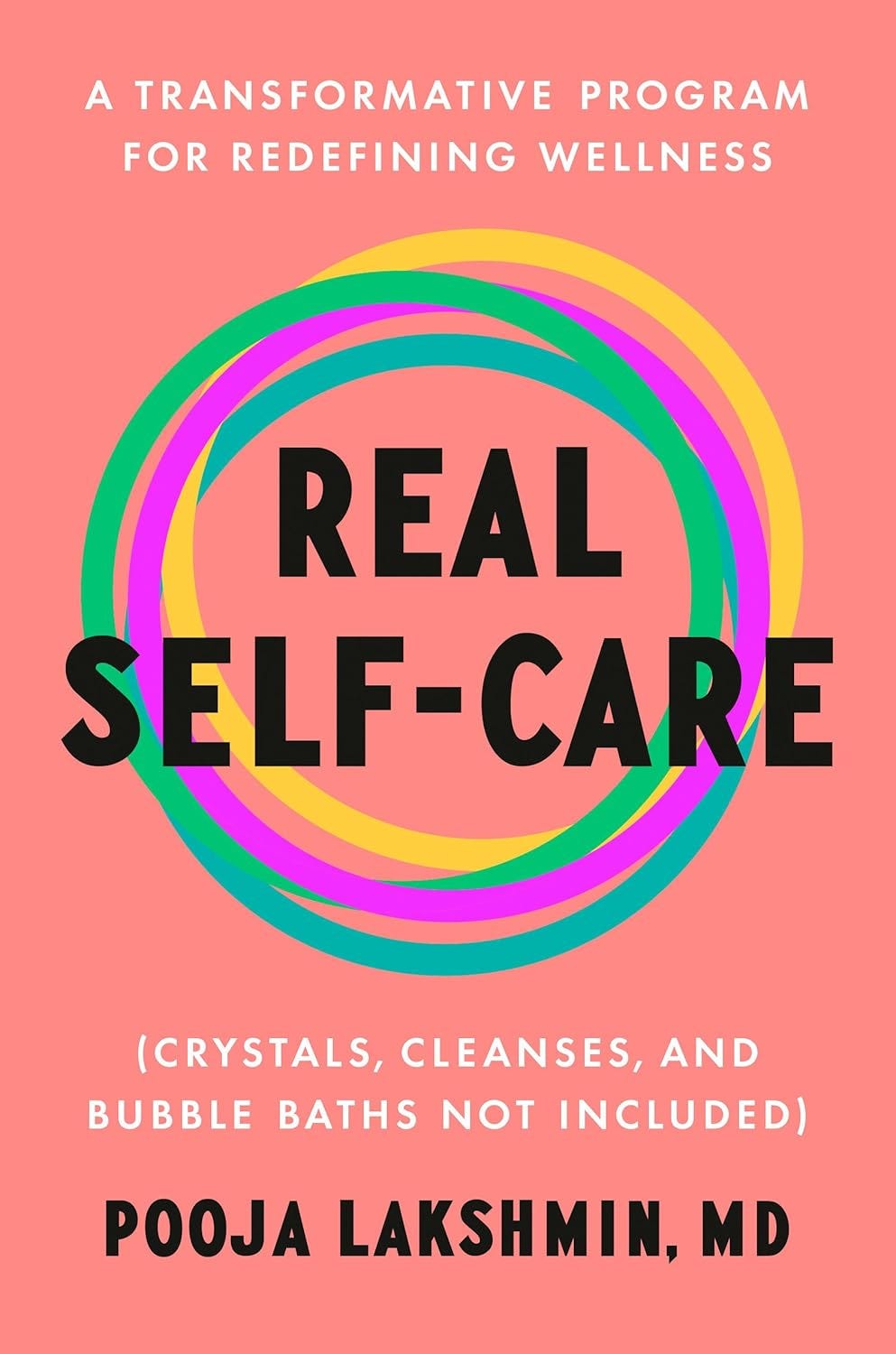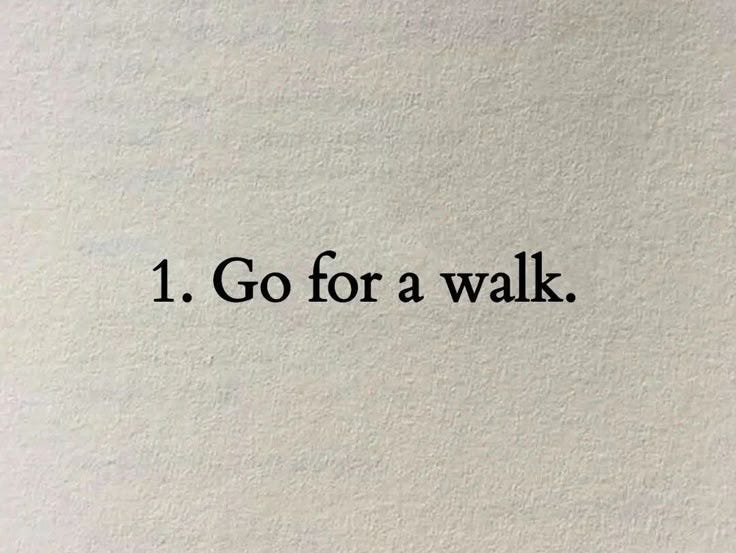There's something deeply ironic about how "self-care" is marketed to us today. What began as a concept focused on genuine well-being has transformed into an industry that profits from our insecurities and exhaustion. Everywhere I look, I see ads for expensive bath products, specialized beauty tools, meditation apps, and wellness retreats—all promising to transform my life if I just spend a little more money.
But here's what I've come to realize: the most effective forms of self-care in my life have almost nothing to do with consumption. They're simple, often free, and rarely photogenic enough for Instagram.
Let's talk about what self-care actually means, how it's been co-opted by marketers, and how we might reclaim it in ways that genuinely support our well-being.
Because—and I say this as someone who is staunchly pro-capitalist—let's be real: the "self-care" being sold to us is absolute garbage.
Self-care wasn't always about $50 candles and spa days. The term originated in medical contexts in the 1950s, referring to activities patients could do to maintain their health. Later, it became associated with political movements, particularly when writer Audre Lorde described caring for herself as "self-preservation" and "an act of political warfare" as a Black woman facing multiple systems of oppression.
The concept was revolutionary: marginalized people asserting their right to care for themselves in a world that often denied their humanity.
Self-care began as a radical act of resistance. Now it's just another way to make us feel like shit about ourselves so we'll buy stuff.
The self-care industrial complex has pulled off an incredible magic trick: they've convinced us that taking care of ourselves requires products, services, and subscriptions. They've monetized our very human need for rest, connection, and meaning. And we're all buying it—literally and figuratively.
The global self-care market is worth over $450 billion. That's not because we're all suddenly taking better care of ourselves. It's because we've been sold the lie that self-care comes with a price tag.
Somewhere along the way, the radical act of caring for oneself transformed into yet another obligation—another thing we're supposed to buy, another standard we're failing to meet.
The message is subtle but persistent: you're stressed because you're not doing enough self-care, and doing self-care means buying these products or services. It's a perfect marketing loop that creates the problem it claims to solve.
While everyone needs self-care, the marketing overwhelmingly targets women. Scroll through the self-care hashtag on any social platform and you'll see a sea of products promising to make us smoother, softer, smaller, prettier, more rested-looking—essentially, more socially acceptable.
I'm so tired of scrolling only to be bombarded with ads for $75 bath soaks, $200 face tools that vibrate for no reason, and subscription boxes full of crap I don't need—all wrapped in millennial pink packaging with sans serif fonts telling me I "deserve this."
Deserve what, exactly? To be manipulated into thinking I need to spend money to take care of myself? To believe that my worth is tied to how many wellness products I own? To feel inadequate if I'm not "investing in myself" through consumerism?
Give me a f*cking break.
And here's the kicker that nobody talks about: most of this shit women do isn't even for men. It's for other women.
I can't tell you how many women I know who go through elaborate skincare routines, contour their faces, maintain expensive highlights, and stress about every pore—while their boyfriends or husbands couldn't care less. Most men I know actually prefer the natural look, or at least a much more toned-down version of what women think they need to do.
We're essentially performing for an audience that doesn't exist, or at least doesn't care nearly as much as we think they do.
And we're paying—financially, emotionally, and with our precious time—for the privilege of this performance. We've been duped into thinking that "treating ourselves" means buying things, when real self-care is often free and much less Instagram-worthy.
It makes me wonder: who are we really doing this for? And who benefits when we believe that caring for ourselves requires constant consumption?
I recently read a book called "Real Self-Care," by Pooja Lakshmin MD, that resonated deeply with me. It highlighted something I've been feeling intuitively: that genuine self-care often looks nothing like what's marketed to us.
For me personally, it's walking. Just plain old walking. Not with special shoes or tracking devices or "walking meditations" I paid for on an app. Just putting one foot in front of the other, preferably outside, ideally daily. It costs nothing. It requires no special equipment. It doesn't look impressive on social media. But it's saved my mental health more times than I can count. It reliably improves my mood, clears my mind, and helps me feel connected to the world around me.
Strength training a few times a week has been another game-changer. Yes, it requires some equipment or a gym membership, but the practice itself is about connecting with my body's capabilities rather than just upgrading its appearance. There's something deeply satisfying about feeling my strength increase over time, and the mental health benefits have been just as significant as the physical ones.
From conversations with friends and my own experience, I've noticed that real self-care often looks like:
Setting boundaries with people or commitments that drain you
Getting adequate sleep (not buying expensive sleep aids)
Moving your body in ways that feel good
Saying no to things you don't want to do (this one’s huge!)
Processing emotions instead of suppressing them
Connecting meaningfully with people who see and accept you
For some, going to therapy (yes, this costs money, but it's an investment that pays real dividends)
Spending time in nature, getting a daily dose of sun
Reading books that expand your mind
Creating things for the joy of creation, not for external validation
Notice what's missing from this list? Products. Purchases. Things that come in packages with inspirational quotes on them.
Here's what the self-care industrial complex doesn't want you to know: real self-care compounds over time, while product-based self-care is designed to keep you coming back for more.
When I take a walk every day, the benefits build. My heart health improves. My mind gets clearer. My mood stabilizes. I sleep better. These effects compound day after day, week after week.
When I use a face mask... I look slightly more refreshed for a few hours. Then I need another face mask.
See the difference?
Real self-care practices create positive feedback loops. When I lift weights, I get stronger, which makes me feel more capable, which improves my mood, which gives me energy to lift again, which makes me stronger... and on and on in a beautiful cycle of genuine improvement.
Consumer self-care often creates dependency loops. You feel bad, you buy something to feel better, it works temporarily, you feel bad again, you buy something else... and the main thing that improves is the company's profit margin.
This isn't to say all purchased self-care products or services are useless. Some can be wonderful tools or occasional treats. The problem arises when we're led to believe that caring for ourselves primarily requires consumption rather than consistent practices and choices.
Let's follow the money. Who benefits when we believe that self-care requires purchasing things? Hmm…
Companies selling products and services
Influencers earning commissions on those products
Media platforms hosting ads for those products
The economic system that depends on continuous consumption
Who doesn't benefit as much as they could?
Us—our bank accounts, our authentic well-being, our sense of agency
The self-care industrial complex isn't interested in your actual wellbeing. If you were truly well, truly content, truly accepting of yourself, you'd be a terrible customer. You wouldn't need their continuous stream of products promising transformation and healing.
They need you just broken enough to keep buying, but not so broken that you give up entirely.
This isn't a conspiracy theory—it's simply the nature of market capitalism. Companies need to sell products, and creating a sense of lack or need is an effective way to do that. The beauty and wellness industries have perfected this approach.
Again, I say this as someone who could not be more pro-capitalist. Consumer responsibility is huge—we have to make smart choices with our wallets.
Let me be clear: I'm not suggesting we need to reject all commercial self-care products or judge people who enjoy them. There's nothing wrong with a fancy candle or face mask if it genuinely brings you joy.
The issue arises when we're led to believe these purchases are necessary for our well-being, or when commercial self-care becomes a substitute for addressing deeper needs like rest, meaning, connection, and purpose.
So how do we escape this trap? How do we reclaim self-care as something meaningful rather than another avenue for consumption and performance?
First, we get honest with ourselves. Next time you're about to buy something in the name of "self-care," ask:
Am I buying this because I truly believe it will improve my wellbeing, or because I've been conditioned to think I need it?
Who profits from my purchase of this product?
Does this practice or purchase address a genuine need, or a manufactured insecurity?
Will the benefits of this practice compound over time, or will they fade quickly?
Am I doing this primarily for myself, or for how others will perceive me?
Is this choice aligned with my deeper values and what I know makes me feel genuinely well?
Could I meet this same need in a less costly or more sustainable way?
Second, we experiment with actually caring for ourselves. Try tracking your mood after different activities. What genuinely makes you feel better, calmer, more centered? For a week, notice what activities leave you feeling replenished rather than depleted.
For me, it looks like:
Walking outside for at least 30 minutes
Reading before bed instead of scrolling
Strength training 3-4 times a week
Having unstructured time with no plans or obligations
Deep conversations with friends where I can be my authentic self
None of these things make for great Instagram content. None of them involve unboxing anything. They're boring to watch but revolutionary to experience.
Third, we need to stop judging ourselves and others by how well we perform self-care. The "it girl" aesthetic of perfect morning routines and aesthetic wellness practices is just another way we've turned self-care into performance. Real self-care isn't always pretty. Sometimes it's crying in the shower. Sometimes it's saying no to plans even though people might think you're a flake. Sometimes it's eating a vegetable even though you don't want to.
Fourth, consider stepping back from social media or curating your feed more intentionally. Much of what we perceive as necessary for our well-being comes from seeing what others are doing (or claiming to do). Creating some distance can help us reconnect with what actually works for us as individuals. (I dug into this a little in my piece “taste is the new intelligence”, as well as “taste is a way of remembering yourself”)
Lastly, be gentle with yourself in this process. We've all been influenced by marketing and social pressure around self-care. Noticing these patterns doesn't mean we need to judge ourselves for having participated in them.
Maybe the most powerful form of self-care in our consumption-oriented culture is this simple act of discernment: distinguishing between what genuinely nourishes us and what we've been conditioned to think we need.
True self-care isn't always Instagram-worthy. Sometimes it looks like having difficult conversations, setting uncomfortable boundaries, processing challenging emotions, or making choices that prioritize long-term well-being over immediate gratification.
In reclaiming self-care from its commercial distortions, we return to something essential: the recognition that we are worthy of care exactly as we are—no purchase necessary. This doesn't mean rejecting all products or services related to well-being, but approaching them with awareness rather than automatic consumption.
The most valuable forms of self-care are often those that connect us more deeply to ourselves, to others, and to the world around us. They're practices rather than purchases, habits rather than indulgences.
So the next time you're considering a self-care purchase, pause and ask yourself: Could a walk outside, a conversation with a friend, or a good night's sleep provide what I'm really seeking? Often, the most effective care is also the simplest.
After all, as my experience with walking and strength training has shown me, the most transformative forms of self-care aren't about adding more to our lives—they're about returning to what humans have always needed: movement, rest, connection, meaning, and the courage to set boundaries that protect our energy and values.
That's self-care I can believe in.
Take care, xo


















